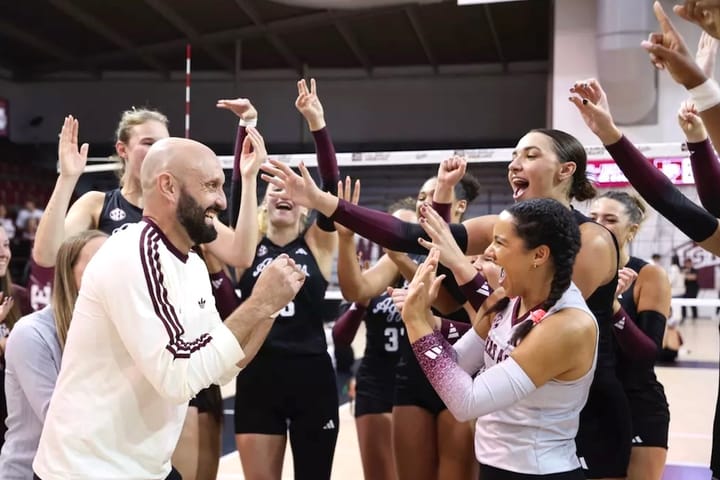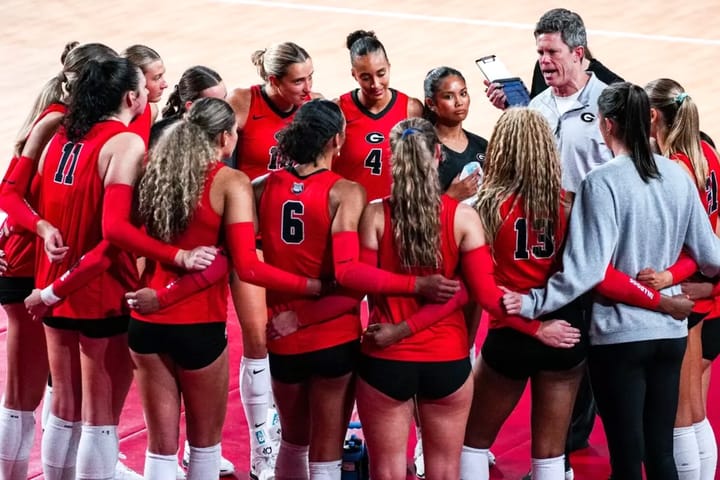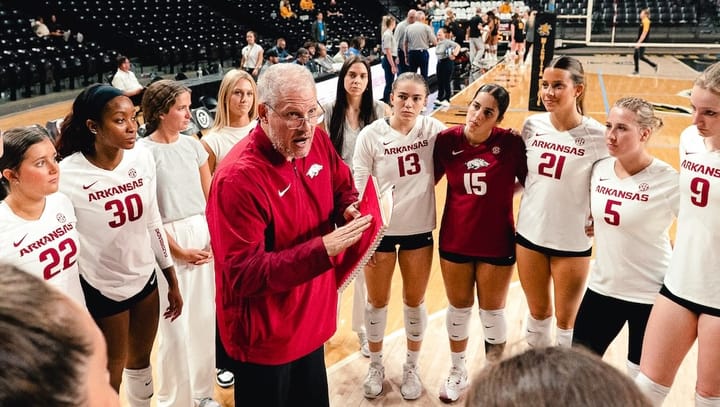99. Travis Hudson: Authentic relationships are everything.
Travis Hudson is Western Kentucky University's head volleyball coach, WKU Athletics Hall of Fame inductee, and the architect of one of college volleyball's most remarkable turnarounds.
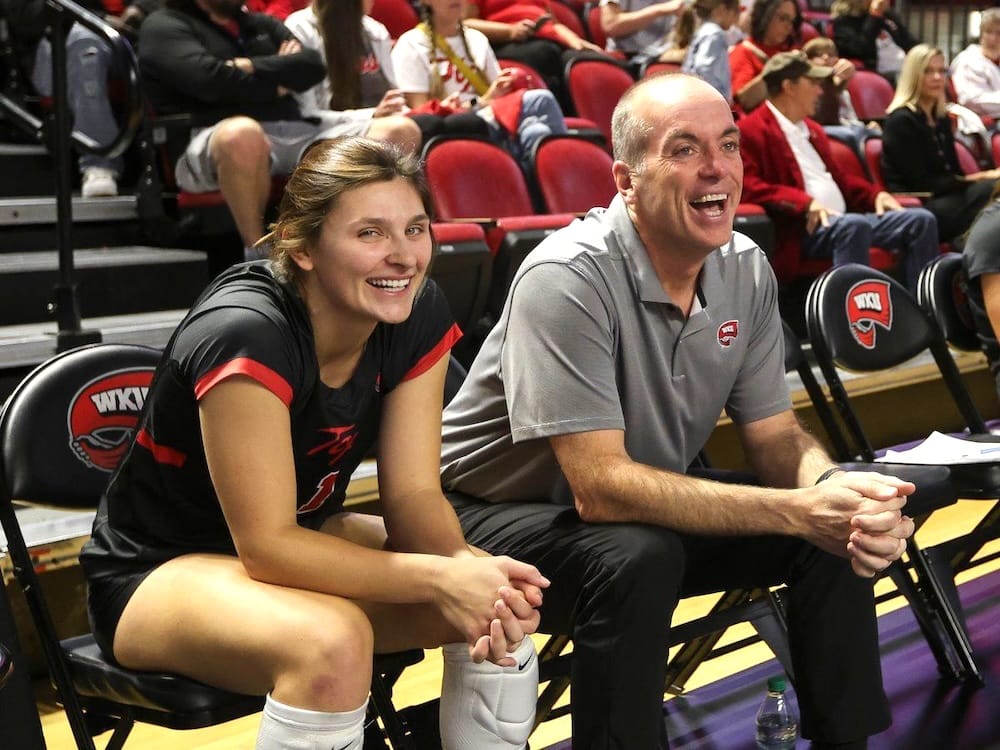
When Travis Hudson took over WKU volleyball in 1995, he inherited one of Division I's worst programs, ranked 308th out of 326 teams.
Fast forward three decades: he is the architect behind turning WKU Volleyball into a championship-caliber team and bringing national attention to the Hilltopper program.
Coach Hudson has led WKU to an astounding 34 conference championships and 17 NCAA Tournament appearances.
He is a 12-time Conference Coach of the Year and has coached 12 Conference Players of the Year, 13 All-Americans (including four, four-time All-Americans) and 68 first team All-Conference honorees.
In this deeply personal conversation, Travis shares the philosophy and experiences that transformed a struggling program into a volleyball powerhouse while maintaining his core belief: success on the court comes from who you are off it.
Key takeaways from this article include:
- Trust yourself as a young coach - learn from others but filter everything through your own authentic coaching style.
- Why boringly consistent simplicity beats fancy drills and complex systems every single time.
- How investing in players as humans first creates the foundation for championship performance.
- The critical balance between being a great coach and great parent - and why you don't have to choose.
- Why the best players embrace vulnerability and aren't afraid to look bad while learning.
- How a monthly Zoom group with other coaches became his most valuable professional development tool.
- The power of strategic distance - why he never watches warmups and arrives just before game time.
- Understanding that coaching greatness transcends X's and O's - it's about relationships, communication, and genuine connection.
Enter Travis...
Matias Raymaekers: Do you remember the moment that you decided, "Okay, I'm going to jump into full-time coaching or professional coaching with both feet"? And what was your thought process behind becoming a full-time coach?
Travis Hudson: I do remember it. I grew up playing football and basketball, so we could talk a long time just about this piece of it because when I graduated from high school, I had never played volleyball in my life.
And at the age of 24, I became the head volleyball coach at Western Kentucky. And that's a pretty big jump in a short period of time. (full WKU video at the bottom of this Masterclass)
I did believe that I would coach – I always thought I would coach – but I thought I would end up coaching football or basketball. Volleyball was just put in front of me. When I was exposed to the game for the first time, I knew that's where my passion was going to be.
And then coaching... you know, I've always been fascinated. I've always believed that someone who can really coach could learn to coach any sport. I've always believed that.
I've always believed that anybody can learn the X's and O's of coaching a sport. But what makes a coach elite is relationships. It's the ability to communicate. It's the ability to be vulnerable, you know, and to just dive in and learn X's and O's.
That's why I think – if it was just about understanding the game, then every elite player could become an elite coach. And you notice that's not always the case.
I always felt like I had a gift to teach and to build relationships. Volleyball became that avenue.
Matias Raymaekers: If you could talk to your younger self starting out coaching, with the experience that you have right now, what is something that you would really want to tell yourself?
Travis Hudson: Trust yourself more. Don't worry as much – trust yourself more. Because, you know, one of the biggest mistakes I made when I was young as a coach is craving, wanting to be great at what I did.
I watched so many coaches around me, and obviously you learn things from every coach that you spend time around, but it's also about understanding that genuinely being who you are is a critical component to being able to coach at a high level.
I've said this many times, there are coaches that are yellers and screamers that succeed at a high level. There are coaches that are very calm and reserved that succeed at a high level.
And you just have to, I guess, understand the message but relay it within who you are.
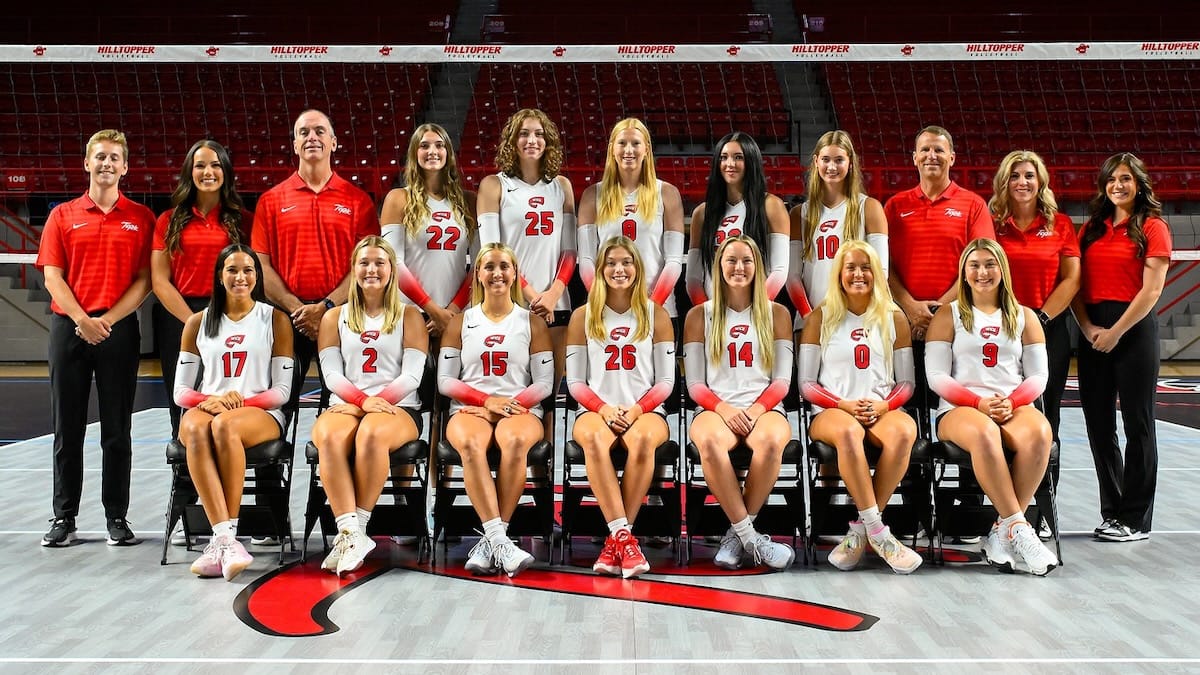
And as a young coach, I wish I would have trusted myself a little more.
It's one of the messages I try to give to young coaches now when I talk to them: learn everything you can learn from the people around you, but run it through your filter.
Because ultimately, you know, that genuine side of it is one of the real keys to doing it at a high level.
Matias Raymaekers: Yeah, I think that translates also to what VolleyBrains is. Don't try to be everything that Travis Hudson is or that Russ Ross is. Use all these opinions and put it through your own filter.
Matias Raymaekers: Okay, today we are 2025. What are bad recommendations that you still hear about coaching volleyball that you're like, "Okay, this should already be a story of the past. This shouldn't be going around anymore"? This can be technical, this can be about culture, team play – whatever you want to talk about.
Travis Hudson: I guess the thing that popped in my mind when you asked that question is – as a young coach and as you're growing – you start learning all these different things about the game.
You start learning all these different ways to teach and all these different drills. And you know, there are hundreds and hundreds and hundreds of drills, and to be honest, in a year's time, I use about 10.
You know, there are all these fancy names for these drills and these cool ways to go about it, but at the end of the day, I think you can spread yourself out too much.
I've always believed one of the real keys is not necessarily doing more – it's being boringly, boringly consistent in the things that you do.
And that's a real foundational piece for me. I think that simplicity is a good thing, not a bad thing.
You know, many people, when they talk about what we do offensively here, they always talk about how simple our offense is. I always laugh at that – a scouting report when you're playing Western Kentucky only takes about 20 minutes to put together, but it's defending it that becomes the hard part.
And so that's the thing for me – the simplicity of it.
I think you see it as the game has evolved through the years. You see things go in and out of popularity. But at the end of the day, it's still about doing a certain few things very, very well and very, very consistently.
Matias Raymaekers: Do you have a definite goal right now in the phase of your career that you're in?
Travis Hudson: Yeah, my goals have always been the same. And they're still the same goals that motivate me, and it's kind of crazy because you think about a career of longevity – you have these big long-term goals, and I never did. I never have.
I've had the same goals that are on repeat.
First of all, my biggest goal has always been to be a great dad to my kids. One of the things that I was told early on in coaching was how much this would pull me away from my family and I would have to make choices between my family and being a coach.
And I always said the same thing: if I ever have to choose between being a great coach and being a great dad, I'm gonna choose being a great dad.
But I don't believe you do have to choose because I believe that those things feed off one another.
And so my goals are kind of similar. My goals every year is to take the team in front of me and to just maximize who they have the opportunity to be and to watch those kids develop away from the court as well.
I just had a conversation with a player two days ago who is a super driven young player in our program right now. And I told her I wanted her to spend time away from volleyball this summer, and she didn't really love my answer.
And I said, "No, you don't understand. I'm not asking you to sacrifice yourself as a volleyball player. I just want to make sure that when we're done on this journey, you define yourself as something more than just a volleyball player."
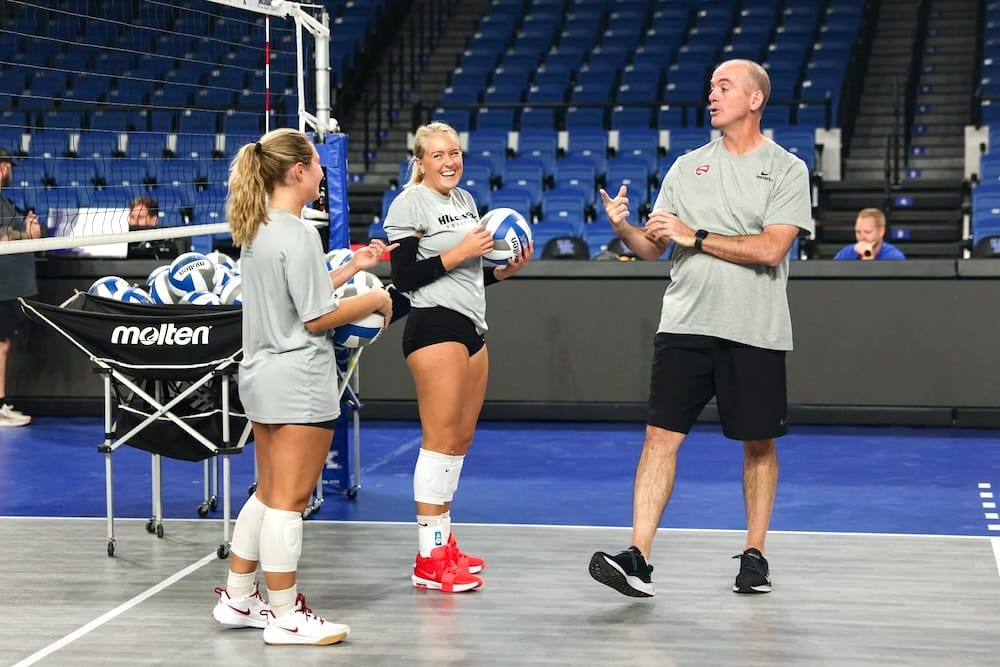
And so we spend time trying to evolve in other areas. Some people in our program have an artistic side to them. Some of them are really close to their faith. There are all these different things that make them complete, which I think make them better as a player.
And I guess one of the things that I've said over and over when people ask me about our success here is I always say we've had the success we have on the court because of who we are off it.
And to be honest, after 31 years, those are the things that are still important to me. Those are the things that motivate me year to year. You know, I've had success beyond my wildest dreams as a head coach. And so if winning a championship or going to an NCAA tournament or doing whatever was my goal as a coach, I would have already retired.
